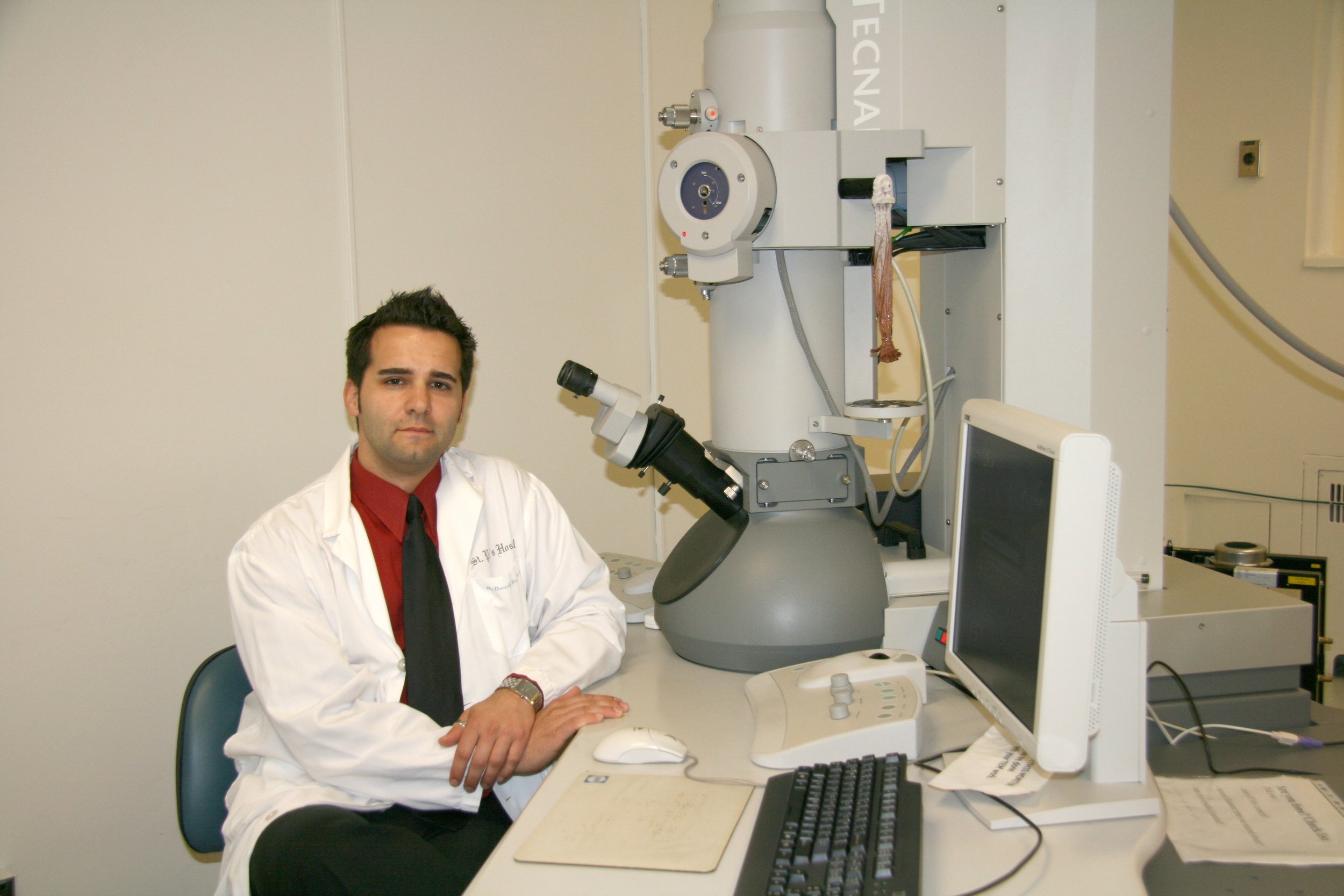Targeting the β-arrestin2 pathway to improve Marfan patient care
$50,000
Funded by GADA Canada
January 2024 - December 2024
Dr. Pascal Bernatchez, PhD
Associate Professor, Department of Anesthesiology, Pharmacology & Therapeutics, University of British Columbia, Vancouver, Canada
LAY ABSTRACT
Introduction: Despite many positive and reproducible studies in Marfan animals, the majority of clinical studies assessing the effect of the angiotensin receptor blocker (ARB) losartan on the rate of aortic root dilation in patients have reported underwhelming results. Our team has observed in Marfan and non-Marfan animals that high-doses of losartan can not only reduce blood pressure but also increase the activity of a signaling pathway that is critical to blood vessel health, in this case the β-arrestin2 pathway, which is associated with blood vessel normalization. We believe that greater activation of β-arrestin2 pathway by losartan or other medications will lead to improved aortic stability.
Our data and objective: We have observed that telmisartan is the most active ARB at improving vessel health and activating β-arrestin2, far more than losartan. As our aortopathy clinic sometimes uses telmisartan for Marfan patients, we need to further stress the expected superiority of telmisartan for patient management and whether clinicians can rely on β-arrestin2 signaling to improve patient management.
Methods: We will study how β-arrestin2 activation by telmisartan improves aortic root stability and retrospectively compare the aortic values of Marfan patients pre- and post-telmisartan treatment.
Significance: Documenting how ARBs activate β-arrestin2 and lead to aortic root stability will allow us to understand what is really needed to block and even reverse aortic root widening, and tell patients ‘yes, you are protected’ or ‘no, you are not protected, let’s increase your dose or switch to another medication, something blood pressure monitoring does not do very well.
Dr. Pascal Bernatchez has a long track-record of studying blood vessels. Since his relocation to the University of British Columbia in 2007, Dr. Bernatchez has received major research grants and awards. He was a Scholar from the Canadian Institutes of Health Research (CIHR), Heart & Stroke Foundation of Canada and Michael Smith Foundation for Health Research (MSFHR). His laboratory receives operations funding from CIHR, MSFHR, HSFC, NSERC, the Rare Disease Foundation, MITACS and the Jain Foundation. His current and past MSc and PhD students have received salary awards / graduate studentships from CIHR, NSERC, the BC Proteomics Network and the Governor General of Canada.

